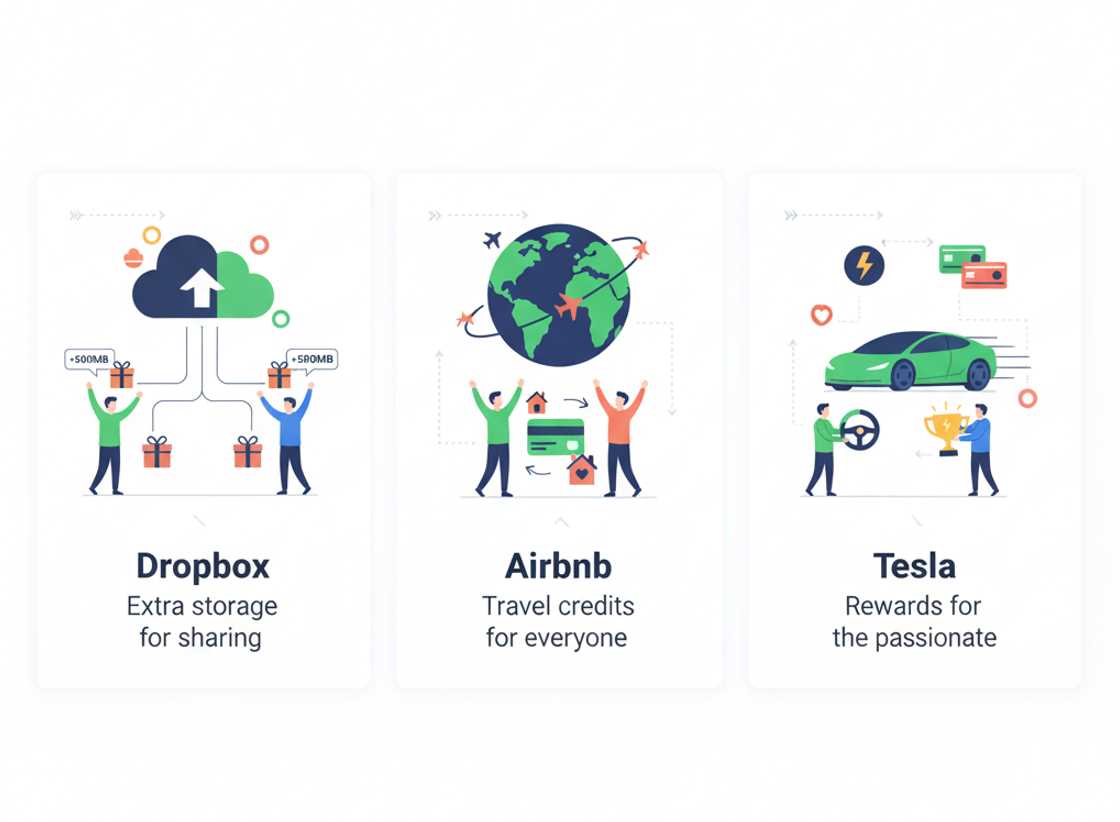Pyramid scheme concerns often arise when discussing referral marketing, leaving many to wonder: is it simply a clever disguise? The confusion stems from similarities—word-of-mouth promotion and rewards for bringing in others. However, on closer inspection, referral marketing is fundamentally different. In this article, we’ll explore how referral marketing works, what defines a pyramid scheme, and how to tell them apart. By the end, you’ll be able to evaluate referral programs like a seasoned expert.
How Does Referral Marketing Work?

Affiliate/Referral marketing is a positive business model that rewards happy customers who introduce a product or service to their friends, family, or colleagues. Companies use referral marketing because consumers are more likely to purchase a product or service from someone they know than from an advertisement.
Referral programs are structured with clear value for both parties:
- The Referrer (the person who refers others) often receives incentives like discounts, gift cards, or cashback for successful referrals.
- The Referee (the person being referred) typically benefits as well, such as receiving a discount on their first purchase or access to exclusive promotions.
Common Features of Referral Marketing
- Mutual Rewards: Rewards often benefit both the referrer and the referee.
- Transparency: Terms and conditions are clearly communicated, including how rewards are earned and distributed.
- Customer-Focused: The emphasis is on customer satisfaction and building long-term relationships with clients through word-of-mouth promotion.
For instance, major brands like Dropbox and Airbnb have used referral marketing effectively. Dropbox offered storage space bonuses for both the referrer and the referee, while Airbnb provided discounts for users referring their friends to the platform.
What Are Pyramid Schemes?
Pyramid schemes are illegal scams that generate income by selling other people the right to sell other people the right to sell the right to sell a product, versus a legitimate company that sells a product or service. Participants in such schemes must pay an initial investment or fee to “join,” and their income is primarily based on recruiting others to join the scheme. Typically, there’s no/almost no true product or service being sold at all, and the emphasis is on endless layers of new recruits (who send their money up the pyramid chain).
Key Characteristics of Pyramid Schemes
- Pay to Play: Participants must pay entry fees or purchase expensive “starter kits” to join.
- No Real Product or Service: The offerings are often of little value or completely nonexistent, with the recruitment of new participants serving as the primary revenue source.
- Unsustainable Structure: The model requires an endless chain of new recruits to sustain itself, which ultimately collapses when recruitment stalls.
A classic example of a pyramid scheme includes organizations that promise “get rich quick” opportunities, where participants are guaranteed high returns provided they keep recruiting others into the fold.
Referral Marketing vs. Pyramid Schemes
While referral marketing and pyramid schemes may initially appear similar because both involve participant-driven growth, their structures and objectives are fundamentally different. Here’s how they compare:
|
Feature |
Referral Marketing |
Pyramid Scheme |
|---|---|---|
|
Primary Focus |
Promoting products or services |
Recruitment of new participants |
|
Revenue Source |
Sales of legitimate goods or services |
Joining fees or investments from recruits |
|
Transparency |
Full disclosure of terms and rewards |
Often hidden or misleading |
|
Mutual Value |
Provides value to both referrer and referee |
Provides value only to those at the top |
|
Legality |
Fully legal when executed properly |
Illegal in most countries |
The key distinction lies in sustainability and value. Referral marketing adds genuine value through the sale of goods or services, whereas pyramid schemes rely on unsustainable recruitment models that harm participants financially.
Legal and Ethical Considerations
How Referral Marketing Stays Compliant
Legitimate referral programs adhere to legal and ethical guidelines to ensure fair practices.
- FTC Compliance (in the U.S.): Referral marketing programs must comply with the Federal Trade Commission’s (FTC) guidelines, which require clear disclosure of rewards and terms.
- GDPR Compliance (in the EU): Programs operating in the EU ensure that personal data shared during referrals is handled securely and transparently under General Data Protection Regulation (GDPR) guidelines.
- No Pay-to-Join Schemes: There’s no mandatory fee to participate in a referral program. Access is freely available to existing or potential customers.
Ethical Practices for Transparency
In addition, the referral practices being used will emphasize trust and the establishment of long-term relationships with clients. The ethical approach is reinforced by clear and honest communication about the terms of the program and the lack of manipulative recruiting pressure, plus the delivery of rewards as promised.
Businesses that are not straightforward about the terms of their referrals or use misleading techniques can lose credibility and end up in court.
Real-World Examples of Referral Marketing Done Right

To further illustrate the legitimacy of referral marketing, here are some brands that have executed stellar referral campaigns:
- Dropbox
Dropbox’s referral program is a textbook example of how to grow a business organically. They offered referrers 500MB of extra storage space for each new user they referred, helping them rapidly expand their user base while providing value to customers.
- Airbnb
Airbnb’s referral program offered travel credits to both the referrer and referee. This created a win-win scenario that encouraged loyal users to share their positive experiences with others.
- Tesla
Tesla’s referral program rewarded customers with incentives like credit towards vehicle upgrades or even opportunities to win new cars. By focusing on their existing fanbase, Tesla amplified their marketing reach to a passionate community.
Understanding the Differences and Moving Forward
Referral marketing and pyramid schemes operate on very different principles, despite initial similarities. Referral marketing emphasizes trust, transparency, and genuine value for all parties involved, while pyramid schemes exploit and financially harm their participants.
If you’re interested in exploring referral marketing further, focus on programs that:
- Clearly define the rewards for both referrers and referees.
- Offer high-quality products or services with genuine value.
- Prioritize customer satisfaction and long-term relationships.
Properly executed referral strategies can drive business growth while fostering a loyal community of engaged customers. Meanwhile, always stay vigilant of any program requiring upfront payment or focused solely on recruitment.
Curious to start your own referral marketing journey? Explore our Home Page
Learn more about: How to Build a Gamified Referral Program










